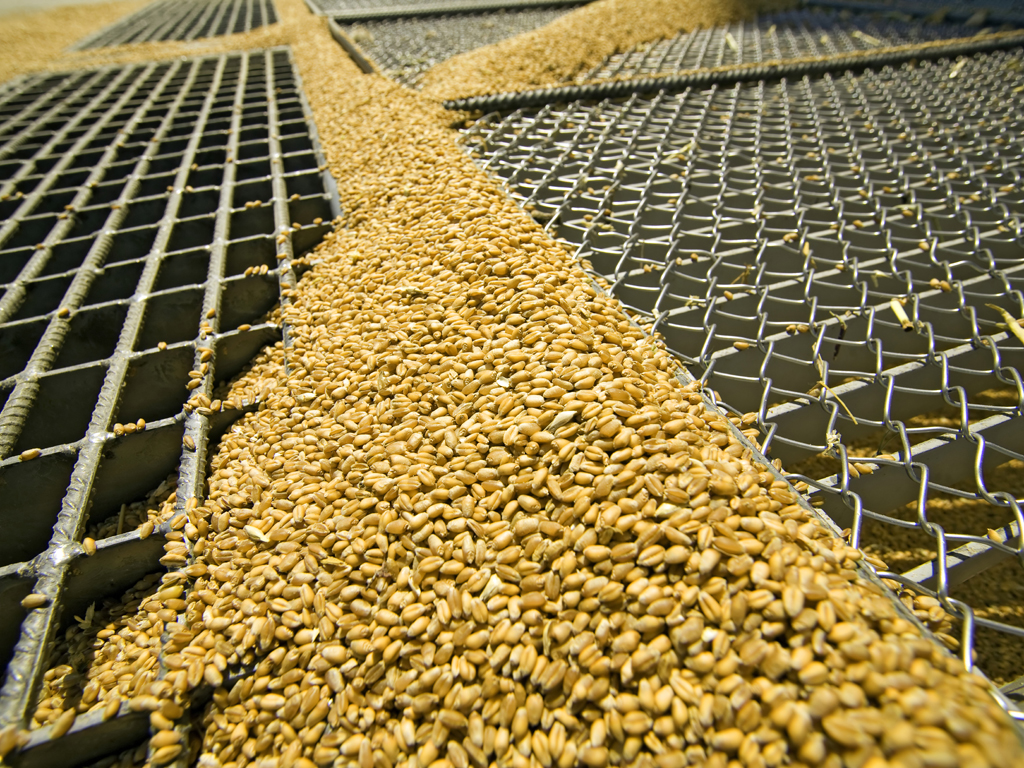It Will Take Two to Three Years to Regulate Commodities Exchange in Serbia
Source: Beta
 Wednesday, 07.02.2024.
Wednesday, 07.02.2024.
 10:26
10:26
 Wednesday, 07.02.2024.
Wednesday, 07.02.2024.
 10:26
10:26
Illustration (Photo: smart.art/shutterstock.com)

– We are satisfied with the work done so far by the Work Group for the Regulation of the Market and the Commodities Exchange. The public warehouses have been listed and the rulebook which proscribes the minimal technical conditions for trade at the buyout locations, warehouses, has been adopted. We want to get warehouse receipts which we will be able to trade, based on the goods handed over to the public warehouse – Tornjanski, who is a member of the Association of Agriculturists of Banat, said for the Beta news agency.
Last autumn, after blocking the roads with tractors, agriculturists requested the regulation of the commodities exchange and the introduction of warehouse receipts and futures contracts.
The competent ministries of agriculture and trade have recently adopted the rulebook which proscribes the minimal technical conditions for warehouses, and which concern space, development and equipment, as well as the manner of the sale of goods.
The rulebook lists, in detail, the equipment that the buyout location has to have, and which enables the setting of the parameters of quality upon reception, that is, classification by quality, the class of agricultural products for grain products, fruit and vegetables, livestock.
The rulebook also proscribes the possibility of the agricultural producer, if they are not satisfied with the determined quantity, quality, or class of the handed over agricultural products, being able to address the responsible inspector of the Ministry of Agriculture, for the purpose of checking the manner of determining the parameters of quality of the control organizations hired by the buyer.
The list encompasses 786 warehouses, as well as oil and alcohol plants and breweries and provides detailed data on the capacities, the manner of storage, as well as the quality of the goods. It has been determined that the total warehouse capacities in Serbia amounted to seven million tons.
The agrieconomic analyst Zarko Galetin said that only the first step had been made toward the regulation of the commodities exchange and the preparations for the issuing of proprietary notices and warehouse receipts.
– In order for the current warehouses to enter the system of public warehouses, a law on public warehouses needs to be adopted, so that they could form a compensation fund, which would compensate the damage to the owner in case of the disappearance of goods. It is only then that the warehouses can get the certificates and enter the system of public warehouses – said Galetin.
Those warehouses, as he said, would issue warehouse receipts which could be traded or act as a collateral for getting credits.
The current warehouses, according to him, can issue proprietary notices, statements about the presence of the goods in the warehouse, and banks are not very likely to accept them as credit guarantees.
He added that the road to trading with futures was far longer, as it required plenty more conditions to be secured, a securities market and the necessary institutions.
Companies:
Savez udruženja poljoprivrednika Banata
Tags:
Work Group for the Regulation of the Market and the Commodities Exchange
Association of Agriculturists of Banat
Dušan Tornjanski
Žarko Galetin
commodities exchange
warehouse receipts
Comments
Your comment
Naš izbor
Most Important News
Full information is available only to commercial users-subscribers and it is necessary to log in.
Follow the news, tenders, grants, legal regulations and reports on our portal.
Registracija na eKapiji vam omogućava pristup potpunim informacijama i dnevnom biltenu
Naš dnevni ekonomski bilten će stizati na vašu mejl adresu krajem svakog radnog dana. Bilteni su personalizovani prema interesovanjima svakog korisnika zasebno,
uz konsultacije sa našim ekspertima.


 Izdanje Srbija
Izdanje Srbija Serbische Ausgabe
Serbische Ausgabe Izdanje BiH
Izdanje BiH Izdanje Crna Gora
Izdanje Crna Gora


 News
News






